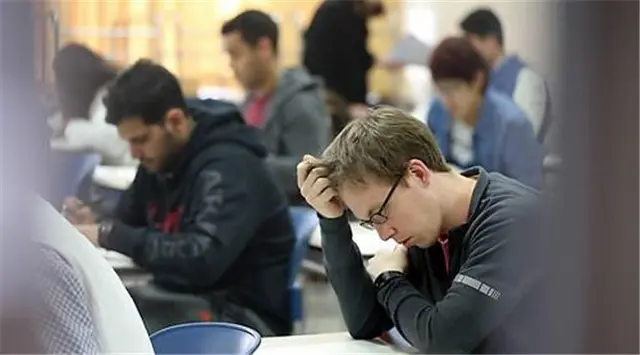The number of applicants to take the state-run Korean language proficiency test for non-native Korean speakers and ethnic Koreans has reached a record high amid foreigners' growing interest in Korean pop culture, the education ministry said Monday.
A total of 72,295 applicants, who are interested mostly in school admissions and job searches in South Korea, applied for the 46th Test of Proficiency in Korean (TOPIK), administered Saturday and Sunday at 164 locations in 45 countries worldwide.
The number of test-takers for the test this time is the largest at one time since it was launched in 1997.
TOPIK measures the ability to understand Korean grammar, reading, listening and writing for people preparing to work or study in South Korea as well as those wishing to work for South Korean firms' overseas branches or plants.
The National Institute for International Education, the test's administrator, increased the number of times the test is given to six a year in 2015 from once in 1997.
According to the test's administrator, the number of TOPIK applicants has steadily increased, rising from 2,692 in 1997 to 34,028 in 2006 and 206,768 last year. It showed a more than 70-fold increase during the 20 years that the test has been administrated.
This 2014 April file photo shows non-native Korean speakers sitting for the 33rd Test of Proficiency in Korean at Dongguk University in Seoul. (Yonhap)
The test was administrated in only four countries -- South Korea, Japan, Uzbekistan and Kazakhstan -- in 1997. But the number of countries that offer the test soared to 71 this year.
In the 34th TOPIK, the test was administrated for the first time in Cuba, with which South Korea has yet to establish diplomatic ties. Three more countries -- Bolivia, Jamaica and Poland -- will be added to the group of countries administrating the test in the latter part of this year.
"The test is one of the projects heightening the national brand and plays a role in helping diffuse the Korean language and boosting the national image," said an official at the National Institute for International Education.
(YONHAP)
 简体中文
简体中文

